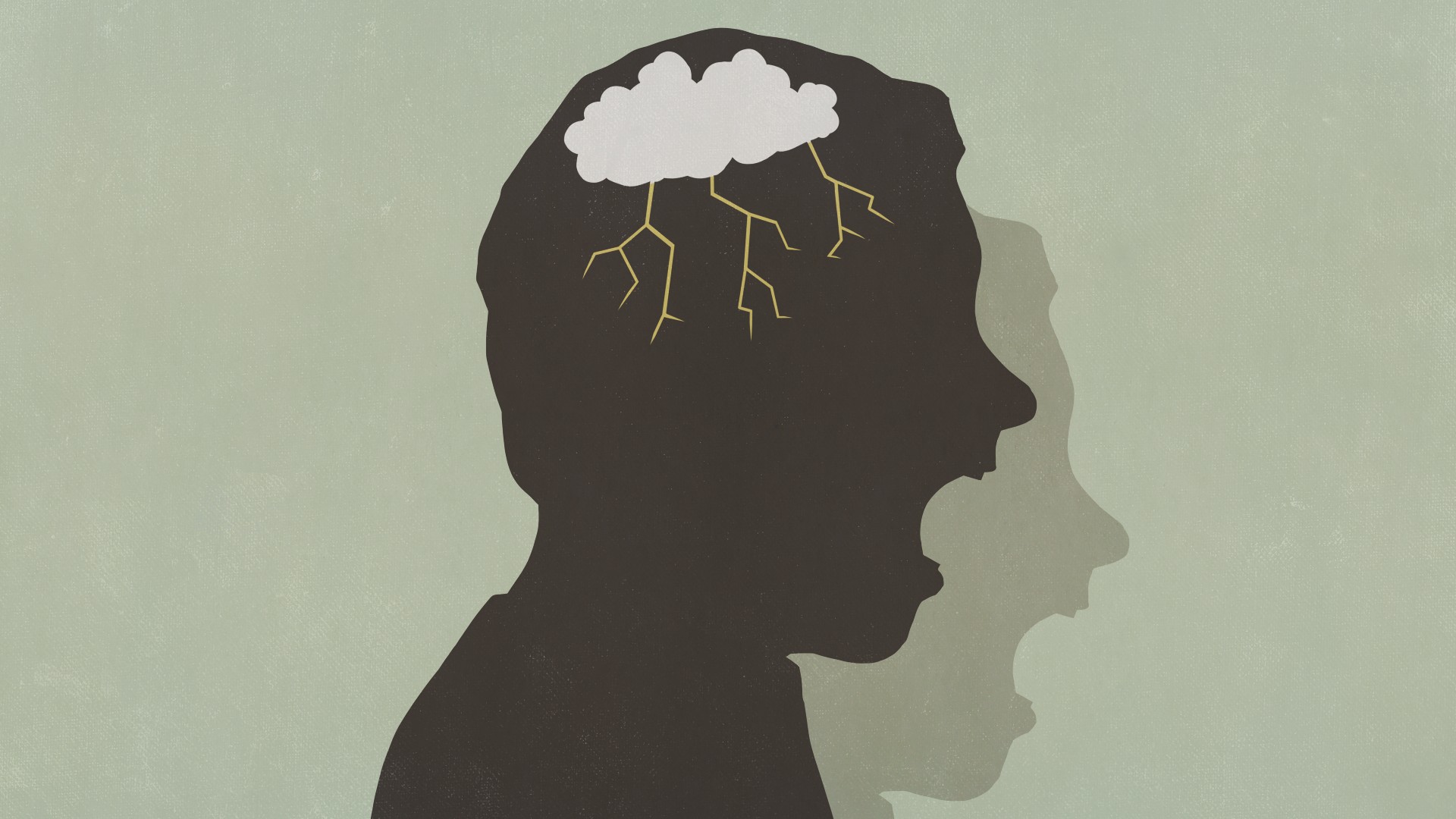Anger may be a powerful motivator for tough goals, new study suggests
Keeping your cool might actually be less efficient than letting your anger drive you


A free daily email with the biggest news stories of the day – and the best features from TheWeek.com
You are now subscribed
Your newsletter sign-up was successful
Anger may be the trick for finding motivation to complete challenging tasks or reach a goal, according to a recent study published by the American Psychological Association in the Journal of Personality and Social Psychology. The findings suggest that "angry people "perform better on a set of challenging tasks than those who are emotionally neutral," The Guardian summarized.
Even though people are more likely to "use positive emotions as tools more than negative and tend to see negative emotions as undesirable and maladaptive,” Dr. Heather Lench, the study's first author, noted that existing research suggests "a mix of emotions, including negative emotions like anger, result in the best outcomes.”
Researchers at Texas A&M University conducted several experiments involving over 1,000 people. They analyzed survey data from over 1,400 to test that theory about anger's impact on someone's drive. The experiments included completing challenging puzzles and avoiding obstacles in a skiing video game. In each experiment, the researchers elicited a particular emotion from the participants before they took on the task. They also analyzed poll data from the 2016 and 2020 presidential elections to consider how anger influenced voting behavior. The group found that "anger increases effort toward attaining a desired goal, frequently resulting in greater success,” Lench concluded.
The Week
Escape your echo chamber. Get the facts behind the news, plus analysis from multiple perspectives.

Sign up for The Week's Free Newsletters
From our morning news briefing to a weekly Good News Newsletter, get the best of The Week delivered directly to your inbox.
From our morning news briefing to a weekly Good News Newsletter, get the best of The Week delivered directly to your inbox.
In all the experiments, researchers found that anger improved the subject's chances of reaching challenging goals compared to a neutral emotional condition. However, when the goal was easier, anger did not improve the outcome, CBS News reported. For some experiments, "amusement or desire were also associated with increased goal attainment," the outlet added, "but anger was associated with increased success across the board."
“Our research adds to the growing evidence that a mix of positive and negative emotions promotes wellbeing and that using negative emotions as tools can be particularly effective in some situations,” Lench said in a press release.
A free daily email with the biggest news stories of the day – and the best features from TheWeek.com
Theara Coleman has worked as a staff writer at The Week since September 2022. She frequently writes about technology, education, literature and general news. She was previously a contributing writer and assistant editor at Honeysuckle Magazine, where she covered racial politics and cannabis industry news.
-
 Political cartoons for February 15
Political cartoons for February 15Cartoons Sunday's political cartoons include political ventriloquism, Europe in the middle, and more
-
 The broken water companies failing England and Wales
The broken water companies failing England and WalesExplainer With rising bills, deteriorating river health and a lack of investment, regulators face an uphill battle to stabilise the industry
-
 A thrilling foodie city in northern Japan
A thrilling foodie city in northern JapanThe Week Recommends The food scene here is ‘unspoilt’ and ‘fun’
-
 ‘Longevity fixation syndrome’: the allure of eternal youth
‘Longevity fixation syndrome’: the allure of eternal youthIn The Spotlight Obsession with beating biological clock identified as damaging new addiction
-
 Trump HHS slashes advised child vaccinations
Trump HHS slashes advised child vaccinationsSpeed Read In a widely condemned move, the CDC will now recommend that children get vaccinated against 11 communicable diseases, not 17
-
 RFK Jr. sets his sights on linking antidepressants to mass violence
RFK Jr. sets his sights on linking antidepressants to mass violenceThe Explainer The health secretary’s crusade to Make America Healthy Again has vital mental health medications on the agenda
-
 FDA OKs generic abortion pill, riling the right
FDA OKs generic abortion pill, riling the rightSpeed Read The drug in question is a generic version of mifepristone, used to carry out two-thirds of US abortions
-
 RFK Jr. vaccine panel advises restricting MMRV shot
RFK Jr. vaccine panel advises restricting MMRV shotSpeed Read The committee voted to restrict access to a childhood vaccine against chickenpox
-
 The app tackling porn addiction
The app tackling porn addictionUnder the Radar Blending behavioural science with cutting-edge technology, Quittr is part of a growing abstinence movement among men focused on self-improvement
-
 Texas declares end to measles outbreak
Texas declares end to measles outbreakSpeed Read The vaccine-preventable disease is still spreading in neighboring states, Mexico and Canada
-
 RFK Jr. shuts down mRNA vaccine funding at agency
RFK Jr. shuts down mRNA vaccine funding at agencySpeed Read The decision canceled or modified 22 projects, primarily for work on vaccines and therapeutics for respiratory viruses
